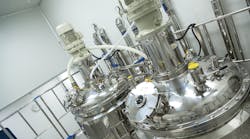I’ve been particularly critical of oil giant BP (www.bp.com) on this page in the past. After a March 2005 explosion at its Texas City, Texas, oil refinery resulted in 15 fatalities and many more injuries, I took exception to BP’s attempt to lay blame for the blast on low-level managers and operators at the facility (July 2005, page 4). I thought it rather crass of BP to point its finger at its employees rather than step up to the mirror and take a long hard look at itself as a company. So when BP announced last month that it has taken a number of actions to align with the recommendations of an independent review panel to improve safety practices at its U.S. refineries, I must say I was quite pleased.
Responding to an urgent safety recommendation issued by the U.S. Chemical Safety and Hazard Investigation Board (CSB, www.csb.gov) in August 2005, BP commissioned an independent group, called the BP U.S. Refineries Independent Safety Review Panel, to assess and report on the effectiveness of BP North America’s corporate oversight of safety management systems at its refineries and its corporate safety culture. The panel, led by former U.S. Secretary of State James A. Baker, III, issued its initial findings in a report released in late January.
In this report, the review panel identifies material deficiencies in process safety performance at BP”s U.S. refineries and calls on the company to "give process safety the same priority it has historically given personal safety and environmental performance." The panel also makes recommendations for improving BP”s process safety leadership, systems, expertise, and oversight of process safety performance.
According to BP, it is already working to implement the panel’s recommendations, and it says it will continue to work with the review panel in a more thorough analysis of its overall safety culture.
I commend BP for taking the initial steps to improve the safety of its U.S. operations; and I hope the company views process safety as a long-term effort. Early signs are that BP is taking its responsibility on process safety seriously, as the panel notes in its report that “since March of 2005 BP has expressed a major commitment to a far better process safety regime, has committed significant resources and personnel to that end, and has undertaken or announced many measures that could impact process safety performance at BP”s five U.S. refineries.”
For fluid handlers in general, BP’s tragedy in Texas City and its response in the aftermath can be used to help guide process safety strategy. In a statement issued by Carolyn W. Merritt, chairman and CEO of the U.S. CSB, she notes, "The [BP safety review] panel’s findings present a landmark opportunity for the boards of directors and executives of oil and chemical companies throughout the world to re-examine their own safety cultures and ask whether they are sufficiently investing in the people, procedures, and equipment that will make their workplaces safe from catastrophic accidents. This is an opportunity for review and reform on a worldwide scale."
Hear hear!
Unfortunately, at the time of this writing, the report issued by the BP safety review panel has been temporarily removed from the BP Web site pending litigation related to the Texas City explosion. However, you can review a summary of the panel’s recommendations via an article on our Web site, titled "BP Acts on Advice of Safety Review Panel.”
[email protected]

